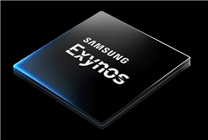The World’s First 2nm Chip: Samsung Exynos 2600 Enters Mass Production for Galaxy S26 Series
Summary:
- Samsung has initiated mass production of the revolutionary Exynos 2600 chip, the world’s first 2nm processor.
- This chip will power the upcoming Galaxy S26 series, offering significant improvements in energy efficiency and performance.
- Despite the introduction of this advanced chip, Samsung will continue supplying Qualcomm’s Snapdragon 8 series in certain markets.
Samsung is set to make waves in the tech industry with the launch of the Exynos 2600, the world’s first-ever 2nm chip. Recent reports indicate that mass production of this cutting-edge processor has officially begun, with the initial batch of wafers now in circulation. This impressive technological advancement is expected to debut in the highly anticipated Galaxy S26 series later this year.
Pioneering the Semiconductor Landscape
The term "Fab-out" is crucial in semiconductor manufacturing, as it marks the transition of wafers into the back-end testing and packaging phase after completing all front-end processes. This is a critical step in ensuring that the chips are ready for mass production. The Exynos 2600 represents a pivotal moment in this process, with Samsung racing towards the forefront of semiconductor technology.
Performance Capabilities
The Exynos 2600 features a sophisticated 1+3+6 core design. It integrates a super-large core operating at a main frequency of 3.8GHz, large cores at 3.26GHz, and small cores at 2.76GHz. Such configurations promise not only enhanced performance but also significant energy efficiency benefits thanks to its 2nm process technology.
Performance benchmarks reveal that the single-core score is 3309 while the multi-core score is 11256, positioning it competitively alongside Qualcomm’s fifth-generation Snapdragon 8 series and MediaTek’s Dimensity 9500. However, it does show a slight disadvantage in single-core performance compared to these competitors.
Strategic Market Positioning
Notably, Samsung has opted for a dual-supplier strategy. While the Exynos 2600 will be featured in the Galaxy S26 series, Samsung will still rely on Qualcomm’s Snapdragon 8 Supreme Edition for various regions. This approach reflects a balanced strategy to maximize reach and product performance globally.
Addressing Past Challenges
The introduction of the Exynos 2600 is significant, especially after the complications faced by its predecessor, the Exynos 2500. Following a delay of over a year from its expected launch date and underperformance compared to competitors, the Exynos 2500’s struggles have shaped expectations for the new chip. The Exynos 2600 aims to restore Samsung’s reputation in the semiconductor industry and demonstrate its technological prowess.
Looking Ahead
With a focus on improving energy efficiency and performance, Samsung is poised to reclaim its position as a leading innovator in chip technology. The Exynos 2600 not only signifies a technological leap into the realm of 2nm processing but also sets the stage for the future of mobile computing. As consumers eagerly await the Galaxy S26 series, the impact of the Exynos 2600 will undoubtedly be a topic of interest within the tech community.
Conclusion
In an era where energy efficiency and performance are paramount, Samsung’s Exynos 2600 emerges as a groundbreaking solution in the semiconductor landscape. As it rolls out for the Galaxy S26 series, this chip not only showcases Samsung’s advanced manufacturing capabilities but also reinforces its commitment to pushing the boundaries of technology. The industry will be watching closely to see how this innovative chip performs in real-world applications and whether it can meet the high expectations set by its competitors.
In summary, Samsung’s launch of the Exynos 2600 is a significant milestone that reflects the rapid advancements in semiconductor technology, paving the way for the next generation of mobile devices.










